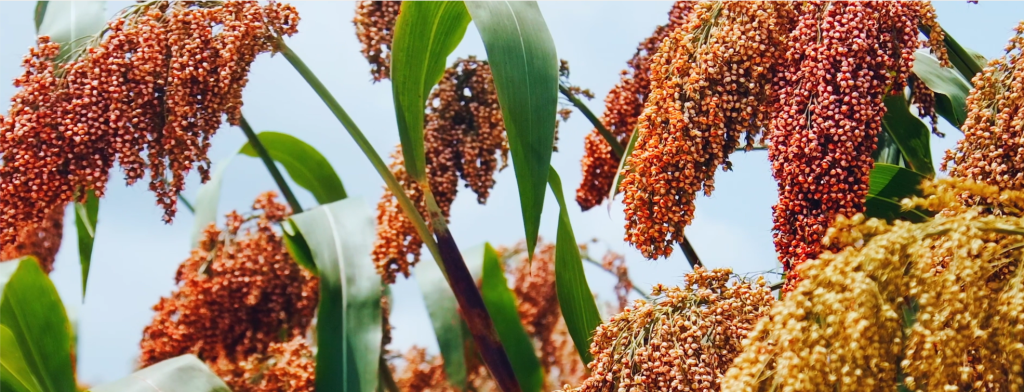Adopting the ancient brewing techniques of the masters, the pure handmade method carries the quality ingenuity

A bottle of "xijiu shengshimingliu" =
1000years of ancient brewing inheritance+9000More than craftsmen have devoted their efforts+1825Brewing day and night
Business banquet

Gift choice

Social gatherings

Festival celebrations

Eastern loong
Eastern Loong
The red loong element represents the symbol of Chinese culture, representing authority and dignity. It not only conveys warm vitality, but also symbolizes prosperity and prosperity. It is supplemented by auspicious clouds that symbolize good luck, happiness and good fortune. It complements the red loong and forms a visual harmony and unity. It represents the vision and beautiful expectations for the future, interprets the great beauty of art, and enjoys taste and grade.




Long-term Value Oriental Collection


The outer packaging is both practical and artistic, and can be reused as a storage box, decoration or gift box, highlighting its long-term value. In addition, the packaging material is selected from green and environmentally friendly materials to ensure that it does not affect the body of the wine, eliminates excessive heavy metals, does not contain plasticizers, and is canned using advanced filling lines to ensure that the inside of the container is sterile and free of impurities. It is fully inspected after production to ensure there are no quality issues.
Famous state-owned enterprises
Produced by Xijiu
The predecessor of Guizhou Xijiu was a liquor workshop owned by the Yin family during the Wanli period of the Ming Dynasty. It was acquired and established as a state-owned enterprise in 1952. It joined Moutai Group in 1998 and grew and developed with the support and help of Moutai Group. In 2022, the "Guizhou Moutai Distillery (Group) Xijiu Co., Ltd." was changed to "Guizhou Xijiu Co., Ltd."
Billion-dollar brand, the second aircraft carrier
Xijiu Factory covers an area of 4,400 mu and has more than 8,000 employees, including national wine evaluation committee members.
There are 15 people, 59 members of the Guizhou Provincial Wine Evaluation Committee, 2 leading talents in China's wine industry science and technology, 1 Chinese Liquor Master, 1 Chinese Liquor Crafts Master, 1 Chinese Chief Liquor Taster, and 1 Guizhou Brewing Master, and more than 2,000 professional and technical talents of various types.
It has an annual production and packaging capacity of more than 40,000 tons of high-quality base liquor and a base liquor storage capacity of 120,000 tons.
In 2020, Xijiu became a brand with annual sales of 10 billion yuan and the second largest sauce-flavored liquor brand.
Oriental Xijiu, full of glory
National Geographical Indication Protected Products
China's second largest sauce-flavor liquor brand
It has been rated as provincial, ministerial and national excellent product for many times

National Quality Award
In 1988, Xijiu won the "National Quality Award"

National Quality Award
In 2019, Xijiu once again won the 18th "National Quality Award"

Concours Mondial De Bruxelles
2020 Grand Gold Medal at the 21st Brussels International Spirits Competition
Pure handmade is more scarce
Shengshi Mingliu strictly follows the master's ancient brewing process, making koji on the Dragon Boat Festival and adding raw materials on the Double Ninth Festival. The production cycle is one year, and all operations are purely manual. The craftsmen incorporate the spirit of continuous improvement into every aspect of brewing. Slow work produces fine work, which is time-consuming, so the batch size is small, which also doomed its scarcity.

高温发酵
High-temperature fermentation
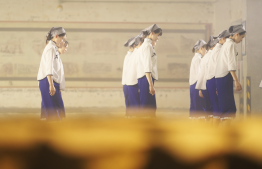
女工踩曲
Female workers are treadingon the grains to make the starter

翻砂摊晾
Open and air dry
Eight major links, layer-by-layer control
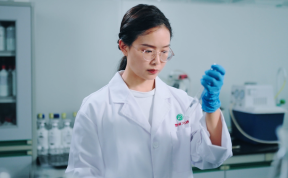

高标准的质量管理
High Standard Quality Management
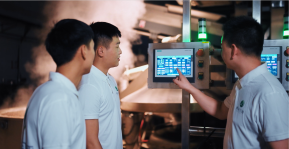
科学管控
Scientific control
The entire production process is divided into eight major links: raw material base management, raw and auxiliary material quality inspection, Daqu quality inspection, new wine grading, packaging quality sampling, finished wine testing, factory wine sample management and after-sales service, ensuring the quality of every drop of wine throughout its life cycle.
In order to ensure the high quality and stability of products, two national innovation platforms are set up:
CNAS testing experiment
室、国家级品酒技能大师工作室,对产品质量进行科学管控,确保产品质量稳定。
Originated from Chishui, a prosperous and famous place
Chishui River Valley
The Chishui River Basin's unique and inimitable geography and extreme ecological environment, characterized by its unique soil, climate, air, and water, contribute to the exceptional quality of its Maotai-flavor liquors. Xijiu originates from the middle and lower reaches of the Chishui River, located in the world's core Maotai-flavor liquor production region. Its winemaking and koji-making facilities are located at an altitude of 300-600 meters, leveraging its natural environment and diverse brewing microbial flora to create its premium Maotai-flavor liquor.

海拔500-600米
Canyon terrain
Altitude 500-600 meters

平均气温20.5°C
More than 300 frost-free days throughout the year
The average temperature is 20.5

相对湿度78%
Hot and humid weather is suitable for fermentation
Relative humidity 78%
红缨子糯高粱
Hongyingzi glutinous sorghum
Authoritative certification of high-quality raw materials

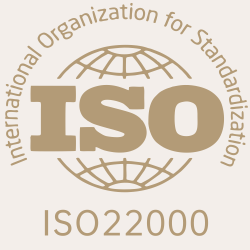
Using high-quality glutinous sorghum, wheat, and water as ingredients, this brewed liquor adheres to the traditional pure grain solid-state fermentation process. The raw grains are sourced from Xijiu's exclusive organic production base. The raw material procurement management system is certified by ISO9001 (quality certification) and ISO22000 (food safety certification). The quality of the grains is expertly verified and certified by the landowner. The kernels of Hongyingzi glutinous sorghum are rosy, plump, and round, ensuring the raw grain is fresh, mold-free, and free of carcinogens. Each kernel weighs between 20-24 mg.
